Adapting to a gluten-free Mediterranean diet can be life-changing, especially for those managing celiac disease or gluten sensitivities. This approach to eating combines the heart-healthy benefits of the traditional Mediterranean diet, such as a high intake of fruits, vegetables, fish, and healthy fats, with the necessity of avoiding gluten. The result is a dietary pattern that supports overall well-being while ensuring safety and variety for those who must navigate food restrictions.
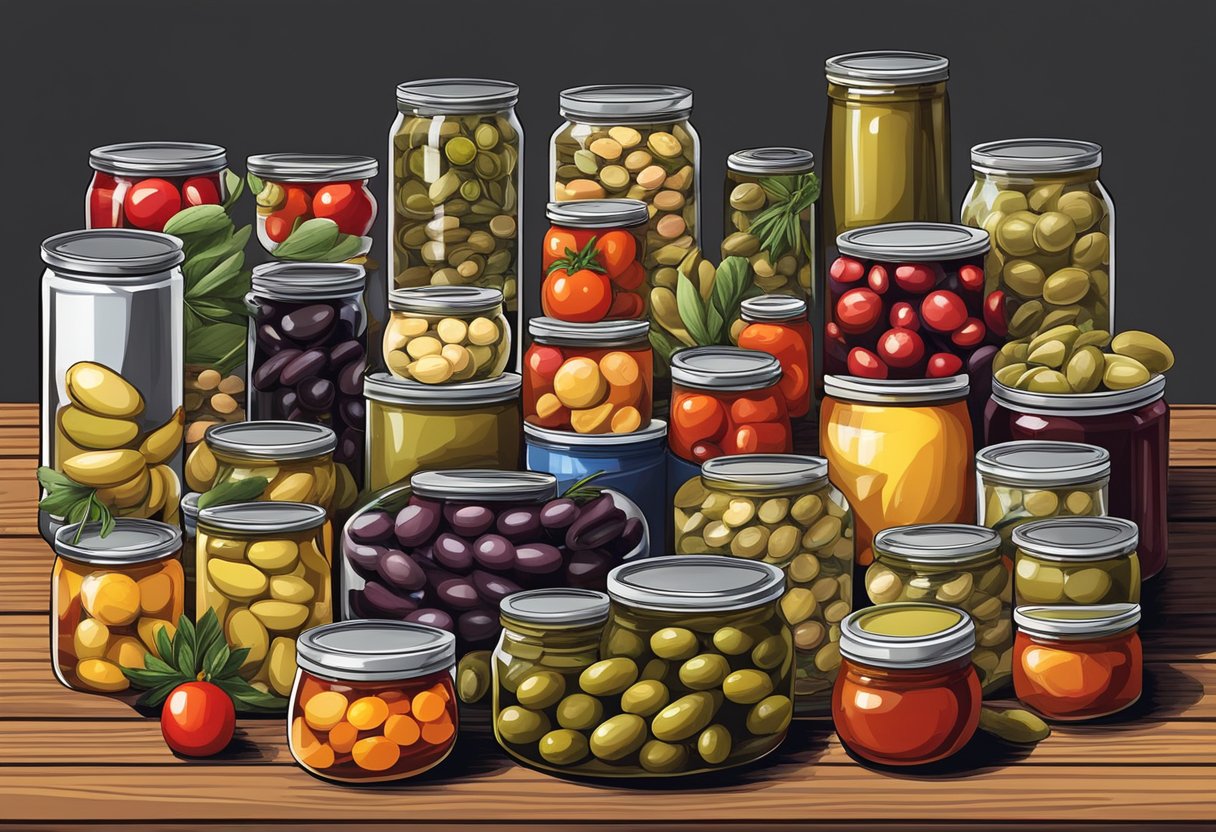
In the context of preserving and canning foods, those following a gluten-free Mediterranean lifestyle confront unique challenges. Incorporating canned and preserved foods can offer convenience and diversify meal options, but it also requires diligent label reading and an understanding of food processing to prevent gluten contamination. Ensuring that canned goods, such as vegetables, legumes, and fish, are free from gluten-containing ingredients or cross-contamination is vital to maintaining this diet without compromising on nutrition or flavor.
Key Takeaways
- The gluten-free Mediterranean diet is a fusion of heart-healthy foods and gluten-free requirements.
- Convenience in this diet can be achieved through the safe inclusion of canned and preserved goods.
- Vigilance in selecting gluten-free certified products is essential to avoid gluten contamination.
Table of Contents
Understanding the Gluten-Free Mediterranean Diet
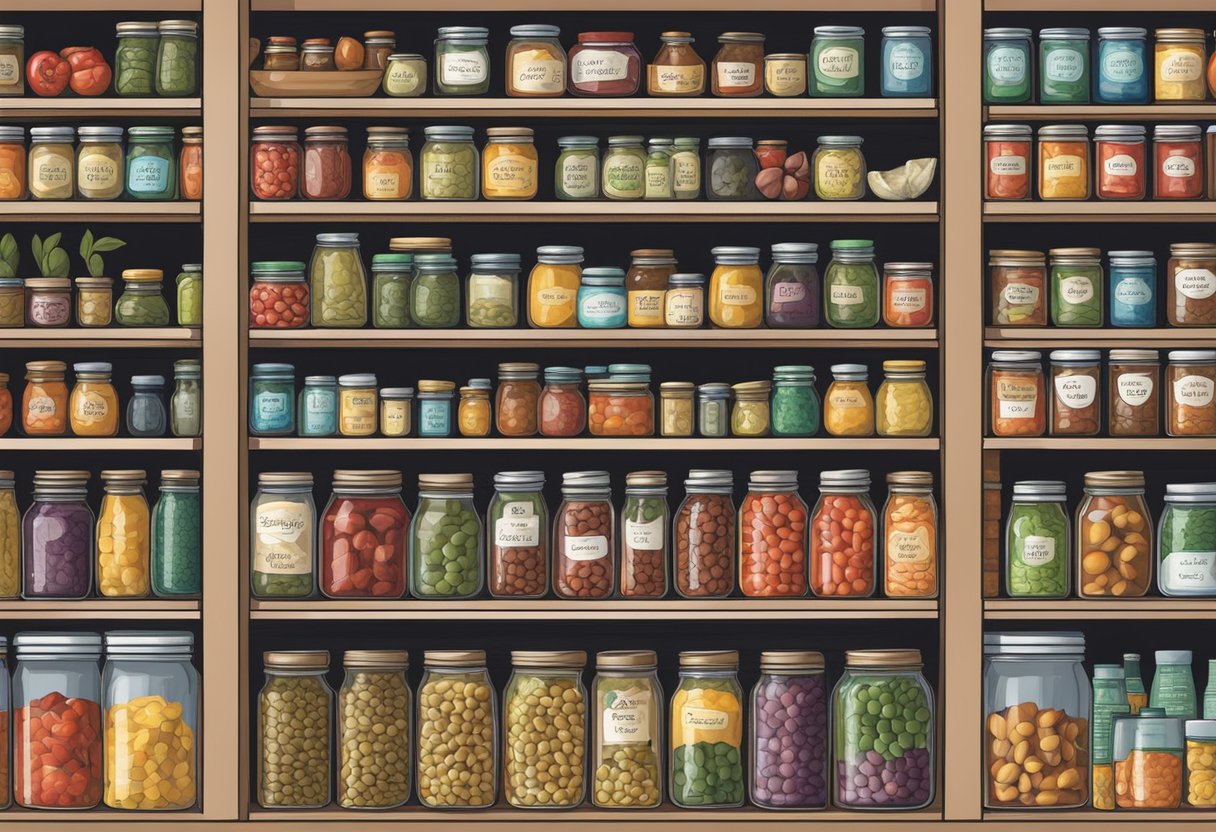
Adopting a gluten-free Mediterranean diet combines the heart-healthy principles of eating Mediterranean with the strict avoidance of gluten, providing a nutritional approach suitable for individuals with celiac disease or gluten sensitivity.
Core Principles of the Mediterranean Diet
The Mediterranean diet emphasizes the consumption of a variety of nutrient-dense foods. Key components include:
- Fruits and vegetables: A high intake acts as the foundation of the diet, providing essential vitamins, minerals, and fiber.
- Whole grains: Traditionally includes grains such as wheat; however, in a gluten-free variant, alternatives like quinoa and rice are used.
- Healthy fats: Olive oil is a staple, delivering heart-healthy monounsaturated fats.
- Protein: Seafood and poultry are recommended in moderation, while red meat is limited.
- Legumes: They are critical for plant-based protein and nutrients.
- Dairy: Consumed in moderation, with an emphasis on fermented options like yogurt and cheese.
- Herbs and spices: Used to flavor dishes, reducing the need for salt.
The Importance of a Gluten-Free Diet
A gluten-free diet eliminates all forms of gluten, a protein found in wheat, barley, and rye. This diet is essential for individuals with:
- Celiac disease: An autoimmune disorder where ingestion of gluten leads to damage in the small intestine.
- Non-celiac gluten sensitivity: When gluten consumption causes symptoms similar to those of celiac disease, but without the intestinal damage.
Celiac Disease and Gluten Sensitivity
People diagnosed with celiac disease or who display symptoms of gluten sensitivity must avoid gluten to prevent serious health complications. In the context of a Mediterranean diet:
- Gluten-free substitutions are made when needed. For example, gluten-containing grains are replaced with grains like buckwheat or millet.
- Reading labels is crucial as some canned and preserved foods might contain hidden gluten.
- Cross-contamination is a risk, hence, ensuring that food preparation areas are gluten-free is vital.
Incorporating the Mediterranean diet’s core principles into a gluten-free eating plan can offer a flavorful yet safe dietary pattern for individuals needing to avoid gluten for health reasons.
Building a Gluten-Free Mediterranean Pantry
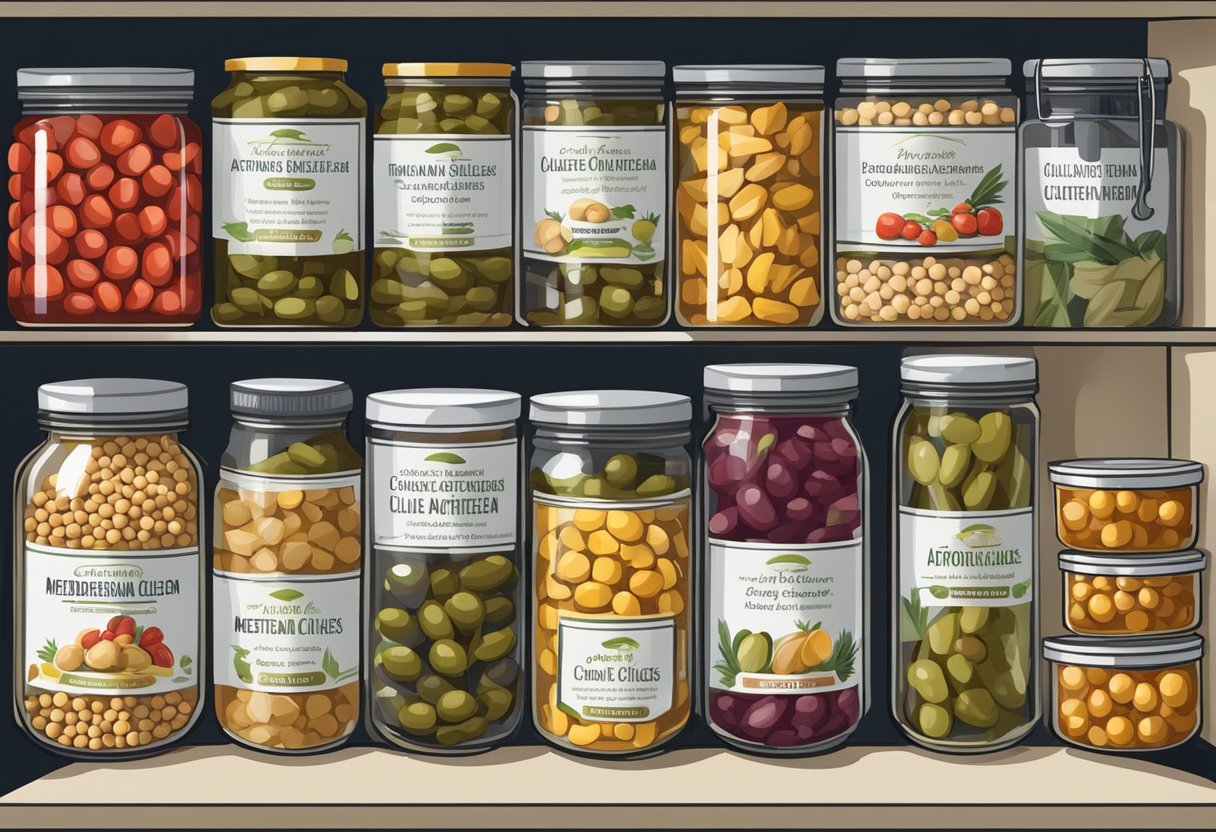
When adopting a gluten-free Mediterranean diet, it’s essential to stock the pantry with nutritious staples that offer versatility and health benefits. These pantry items will become the cornerstone of countless dishes, ensuring that meals are both delicious and suitable for those with gluten sensitivities.
Essential Gluten-Free Grains and Flours
Whole Grains: For those steering clear of gluten, it’s important to select grains that don’t contain this protein. Some excellent choices include:
- Quinoa
- Brown rice
- Millet
- Buckwheat
Flours: In place of traditional flour, gluten-free options deliver similar results without triggering sensitivities. Prime selections encompass:
- Almond flour
- Chickpea flour
- Coconut flour
- Rice flour
Healthy Fats and Oils
Olive Oil: A quintessential component of the Mediterranean diet, extra virgin olive oil is valued for its flavor and heart-healthy monounsaturated fats.
Other Healthy Fats: To diversify the pantry, consider these nutritious oils:
- Avocado oil
- Walnut oil
These oils serve as robust foundations for dressings, marinades, and cooking.
Legumes, Nuts, and Seeds
Legumes: Beans and lentils are pivotal to Mediterranean cuisine, offering substantial protein and fiber. Key gluten-free options include:
- Chickpeas (Garbanzo beans)
- Lentils
- Black beans
Nuts and Seeds: Both are versatile additions rich in essential nutrients. Regularly consumed nuts and seeds include:
- Almonds
- Walnuts
- Pine nuts
- Flaxseeds
- Chia seeds
By integrating these ingredients into one’s diet, a variety of nourishing, gluten-free recipes can be easily crafted.
Fresh and Nutritious Ingredients

The gluten-free Mediterranean diet emphasizes the intake of unprocessed foods, which are crucial for maintaining a healthy and balanced lifestyle. The diet’s cornerstone lies in consuming a variety of fresh vegetables, seasonal fruits, and high-quality gluten-free proteins such as fish, meat, eggs, and poultry. This section explores how to integrate these vital components into your diet.
Vegetables in the Gluten-Free Diet
Vegetables are a fundamental aspect, providing essential vitamins, minerals, and fiber. Key to this dietary approach is the selection of seasonal and local vegetables for optimal freshness. Individuals are encouraged to include a wide array of colors and types of vegetables in their meals, from leafy greens to cruciferous options.
- Leafy greens: Spinach, Kale, Swiss Chard
- Cruciferous: Broccoli, Cauliflower, Brussels Sprouts
Incorporating Fruits
Fruits offer natural sweetness and are packed with antioxidants. They are a versatile component that can be enjoyed as a snack or used to enhance savory dishes. Picking seasonal fruits ensures peak flavor and nutritional value. Citrus fruits and berries, packed with vitamin C, are particularly emphasized in the gluten-free Mediterranean diet.
- Citrus: Oranges, Lemons
- Berries: Strawberries, Blueberries
Choosing Gluten-Free Proteins
Proteins are the building blocks of the body and selecting gluten-free options is essential. The Mediterranean diet highlights the importance of fish and seafood for their omega-3 fatty acids, with an emphasis on variety and sustainability. Lean meats, poultry, and eggs provide additional protein choices and can be prepared in a multitude of ways that align with the diet’s principles.
- Seafood: Salmon, Tuna, Shrimp
- Poultry and eggs: Chicken, Turkey, Eggs
In conclusion, by making informed choices about vegetables, fruits, and protein sources, individuals on a gluten-free Mediterranean diet can enjoy a rich, nutrient-dense menu that supports their health and dietary needs.
Safe Handling of Gluten-Free Foods
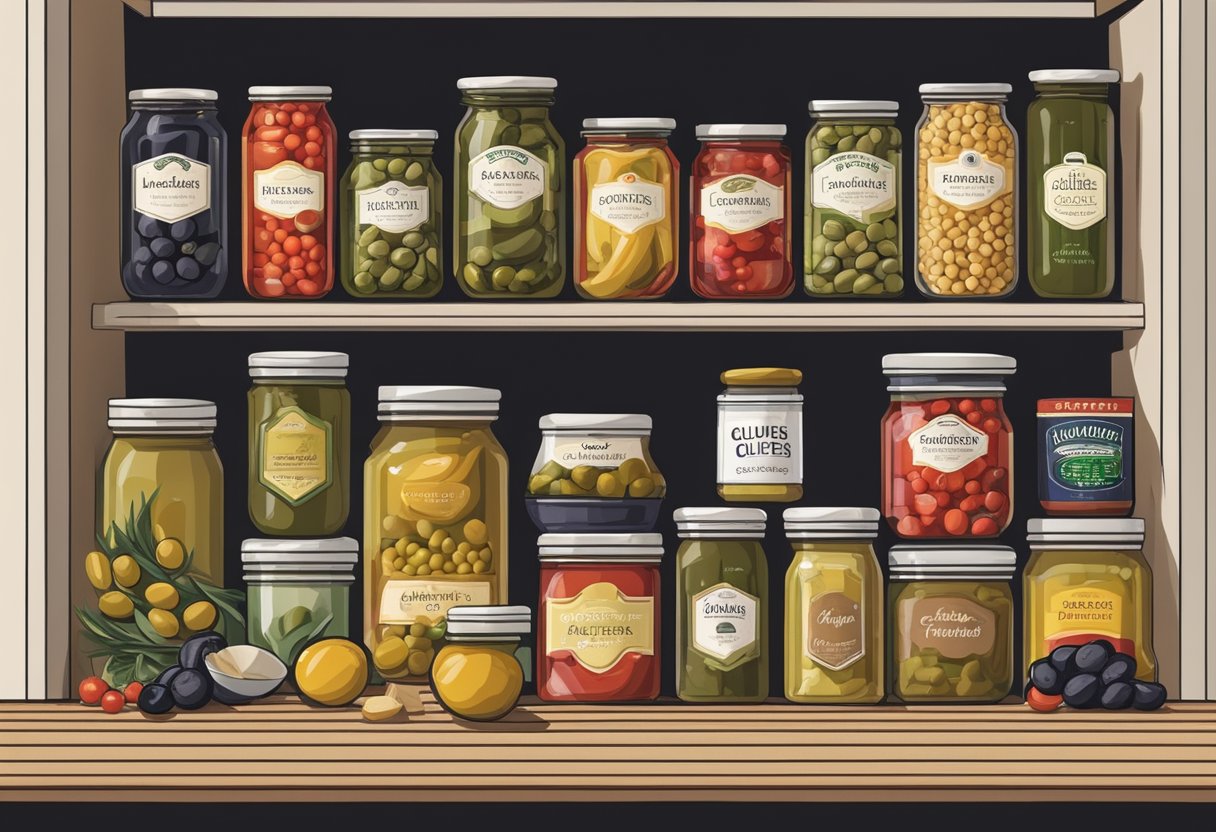
Incorporating canned and preserved items into a gluten-free Mediterranean diet requires careful selection and handling to ensure these foods remain free of gluten contamination. It’s essential to maintain the integrity of gluten-free items throughout storage and preparation.
Avoiding Cross Contamination
When cooking and storing gluten-free products, cross contamination can occur if foods share equipment with gluten-containing items. Individuals should purchase products like separate toasters for gluten-free bread or use toaster bags to limit exposure. Kitchens should designate specific areas and utensils like cutting boards and knives for gluten-free food preparation to minimize the risk. Additionally, regularly cleaning surfaces and storage containers prevents remnants of gluten from previous foods contaminating gluten-free products.
- Cooking: Always use clean pots, pans, and utensils when preparing gluten-free meals.
- Storing: Keep gluten-free canned and preserved foods in clearly labeled containers away from those containing gluten.
Selecting Gluten-Free Processed Foods
Choosing processed foods that fit into a gluten-free Mediterranean diet calls for diligent label reading. Items should be certified gluten-free or clearly labeled as such. One should prioritize products with minimal ingredients, echoing the Mediterranean diet’s focus on whole, unprocessed foods. For preserved foods like pickles or canned vegetables, ensure that no gluten-containing vinegar or additives were used.
- Reading Labels: It’s imperative to read the ingredients and look for any mention of wheat, barley, rye, or malt, as these are sources of gluten.
- Certification: Seek out the gluten-free certification logo for assurance that the product meets strict gluten-free standards.
Breakfast on the Gluten-Free Mediterranean Diet
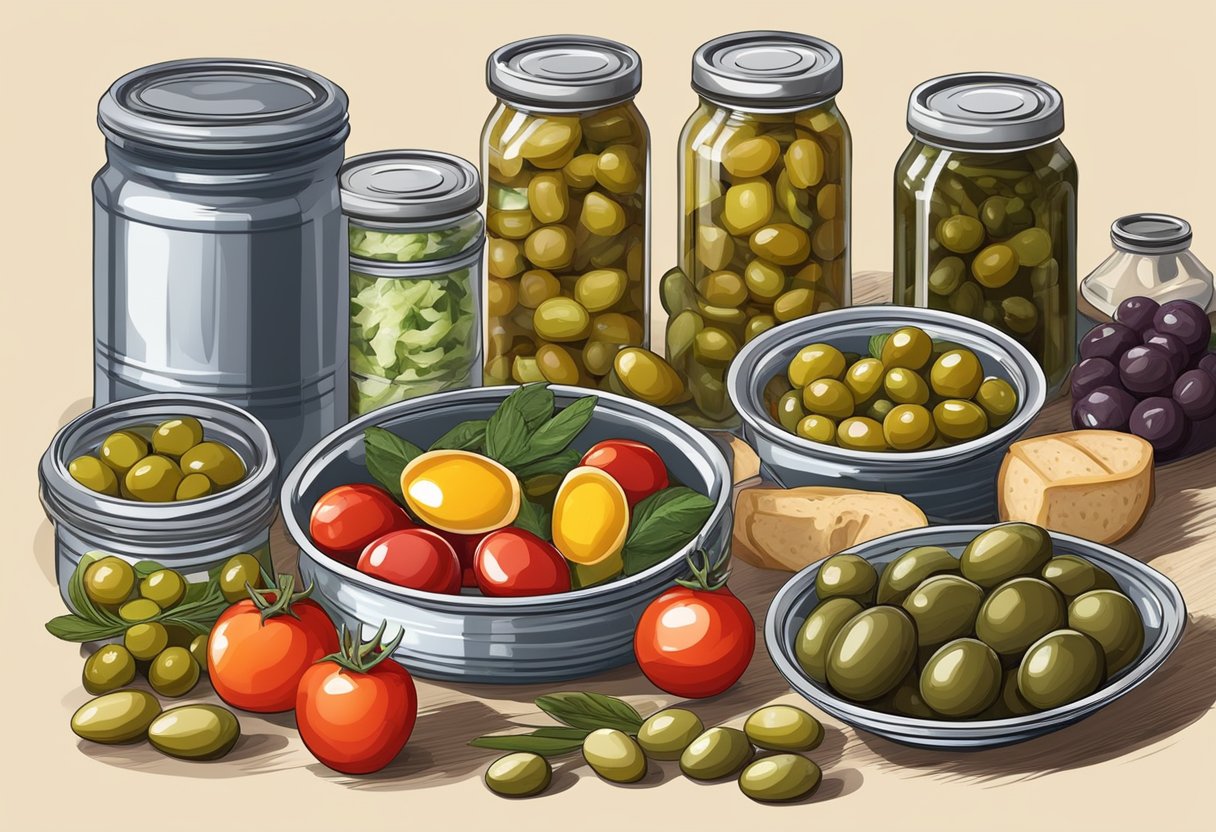
Embarking on a gluten-free Mediterranean diet, one’s morning meal is both a delightful and a nutritious affair. It aligns with the dietary emphasis on fruits, nuts, and dairy products like yogurt, providing robust energy and vital nutrients to jumpstart the day.
Starting Your Day with Nutrient-Dense Foods
For those adhering to a gluten-free Mediterranean diet, breakfast options focus on nutrient density and simplicity. Here’s a peek at some staple categories:
- Fruits: A mix of fresh fruit like berries and citrus provides vitamins and fiber.
- Nuts: Almonds, walnuts, or pistachios offer healthful fats and protein.
- Yogurt: Opt for plain, gluten-free greek yogurt for a probiotic-rich start.
Gluten-Free Breakfast Recipes and Ideas
The following are tailored breakfast recipes ensuring a gluten-free approach while adhering to Mediterranean dietary principles:
-
Fruit & Nut Parfait: Layer greek yogurt with assorted berries and a choice of nuts.
-
Shakshuka: Eggs poached in a seasoned tomato and bell pepper sauce.
By incorporating these foods into breakfast, one ensures a satisfying, gluten-free start to the day that is both in line with Mediterranean dietary patterns and supportive of good health.
Main Meals and Entrees
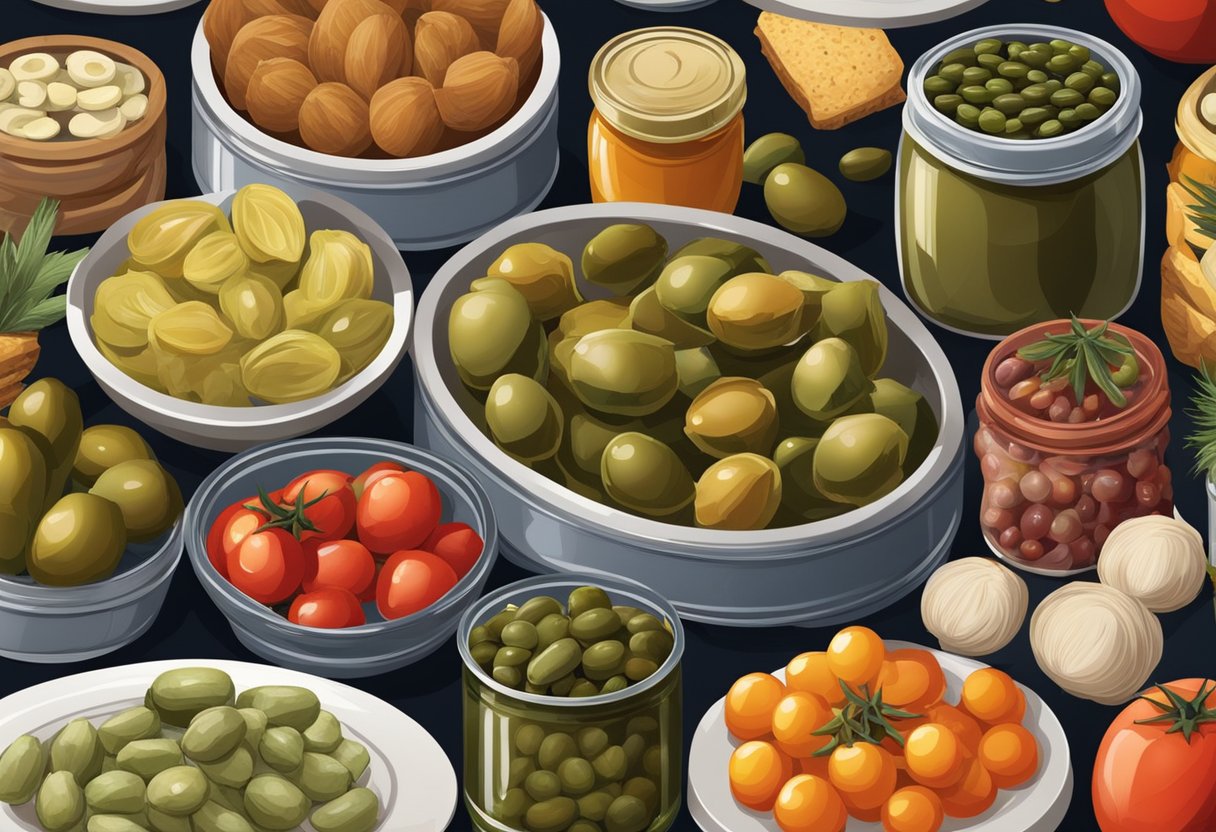
Exploring the gluten-free Mediterranean diet, one finds that main meals and entrees are focused on a balance of gluten-free whole grains, fresh vegetables, and an array of flavorful herbs and spices. Variety and nutrition are paramount, creating meals that delight the palate while adhering to dietary restrictions.
Gluten-Free Mediterranean Recipes
Many Mediterranean diet recipes have been adapted to fit a gluten-free lifestyle. For instance, gluten-free pasta primavera made from corn or rice flour can be tossed with olive oil, garlic, and a plethora of fresh vegetables like spinach, sweet potato, and kale. Adding canned fish such as tuna or salmon increases the protein content while remaining true to the diet’s seaside roots.
Incorporating Gluten-Free Whole Grains
Whole grains are a staple in Mediterranean cuisine, and gluten-free options abound. Quinoa, millet, and brown rice are fantastic choices, rich in fiber and nutrients. They are versatile and can be used in a variety of recipes, such as stuffed peppers with ground turkey and quinoa or brown rice tabbouleh with fresh herbs and lemon juice. Readymade options, like gluten-free oatmeal, can be a convenient base for hearty and nutritious breakfast bowls.
Creative Vegetable-Centric Dishes
Vegetables are the heart of many gluten-free Mediterranean dishes, with meals often showcasing them as the main ingredient. Innovative options such as cauliflower pizza crusts offer a gluten-free alternative to traditional pizza bases and can be topped with an array of vegetables like broccoli, bell peppers, and onions. A simple yet flavorful dish like roasted sweet potatoes with a sprinkle of cinnamon and paprika allows the natural taste of vegetables to shine through, emphasizing health without compromising on flavor.
Snacks and Small Plates
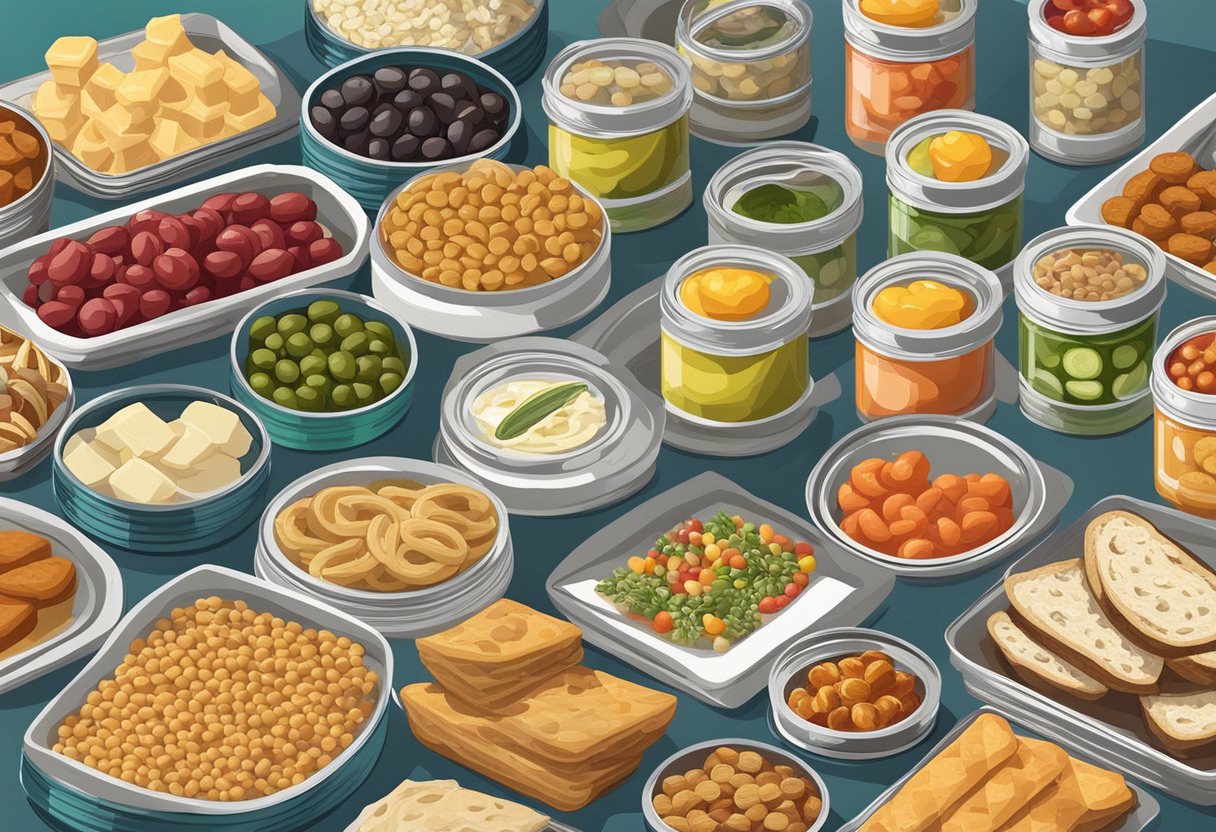
Adhering to a gluten-free Mediterranean diet requires careful selection of ingredients to ensure both nutritional value and dietary compliance. Snacks and small plates offer versatility and convenience, serving as an integral component of daily eating habits.
Healthy Snacking on the Gluten-Free Diet
When snacking on a gluten-free Mediterranean diet, individuals should focus on whole, nutrient-dense foods. Nuts and seeds provide essential fats and proteins, while also being naturally gluten-free. They are an excellent choice for maintaining energy levels between meals. Olives and their oil are fundamental to Mediterranean snacking, offering heart-healthy monounsaturated fats.
- Nuts: Almonds, walnuts, pistachios
- Seeds: Pumpkin seeds, sunflower seeds, chia seeds
Opt for raw or dry-roasted varieties without added gluten-containing ingredients.
Gluten-Free Mediterranean Snack Ideas
Incorporating a variety of snacks that stay true to the principles of the Mediterranean diet can be both satisfying and nutritious. Cheese like feta—a staple in Greek cuisine—is often enjoyed with fruits, which supply vitamins and antioxidants. Below is a list of snack pairings that conform to a gluten-free Mediterranean diet:
- Fruits: Apples, pears, berries
- Cheese: Feta, with fresh figs or apricots for a sweet and savory combination
Enjoy these pairings with gluten-free crispbreads or as part of a small plate to ensure a balanced intake of carbohydrate, protein, and healthy fats.
Desserts and Sweets
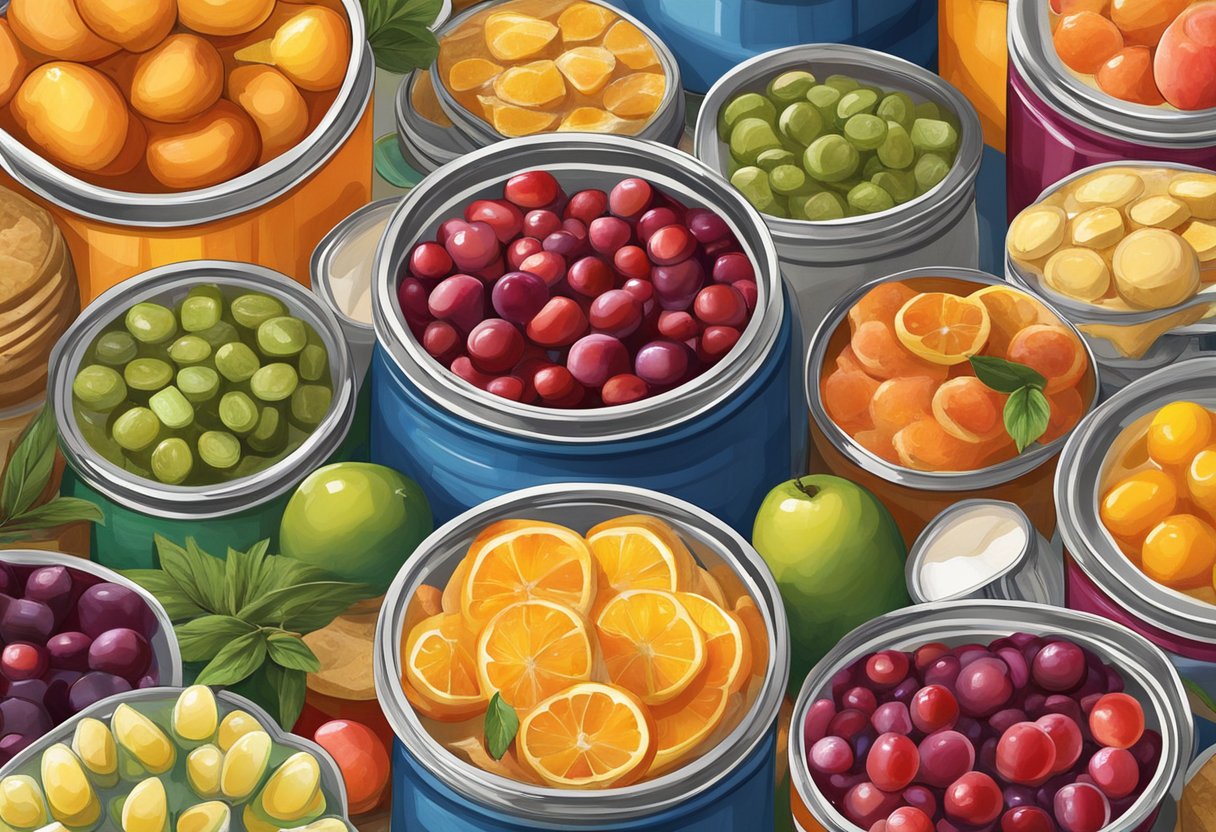
In a gluten-free Mediterranean diet, desserts take advantage of naturally gluten-free ingredients like fruit and nuts to provide sweet indulgence without compromising dietary restrictions.
Gluten-Free Sweets and Treats
Fruits serve as the cornerstone of sweets on the Mediterranean diet, often paired with a bounty of nuts to enhance texture and flavor. For instance, a dessert of Balsamic Berries with Honey Yogurt utilizes the natural sweetness of berries complemented by the tanginess of balsamic vinegar. A combination of these with a dollop of honey-infused Greek yogurt offers a refreshing and healthful sweet treat.
Beyond fruit, one can find gluten-free baked goods using alternative flours. An example is the Chocolate Olive Oil Cake, where almond or coconut flour often replaces traditional wheat flour, allowing those on a gluten-free diet to delight in rich, satisfying desserts.
Moderation and Healthy Alternatives
Adhering to a Mediterranean diet, sweet consumption is balanced with a focus on moderation. Healthier alternatives to traditional sweets are emphasized. For example, making nice cream—a frozen dessert typically crafted from pureed fruit—offers a creaminess akin to ice cream but is both dairy-free and contains no added sugar. The result is a dessert that one can savor, aligning with the practice of mindful eating central to the Mediterranean lifestyle.
It’s always encouraged to get creative with nuts as well, as they can transform a simple piece of fruit into an extraordinary dessert. Almonds or hazelnuts, for example, make a satisfying addition to poached pears, offering a crunch that contrasts the fruit’s softness.
In the gluten-free Mediterranean diet, desserts and sweets are not just afterthoughts but mindful selections that enhance the eating experience while maintaining a commitment to health and enjoyment.
Adopting the Gluten-Free Mediterranean Lifestyle

Transitioning to a gluten-free Mediterranean lifestyle involves embracing plant-based foods and healthful fats, while also scrupulously avoiding gluten to accommodate celiac disease or other gluten sensitivities. This dietary approach focuses on long-term health advantages and provides ample support and resources for those looking to make this lifestyle change.
Long-Term Health Benefits
The gluten-free Mediterranean diet is renowned for its nutritional richness, primarily focusing on the consumption of vegetables, fruits, nuts, seeds, and legumes, complemented by olive oil as the main source of healthy fat. Research underscores its potential to reduce the risk of chronic diseases, including heart disease, certain forms of cancer, and type 2 diabetes. Additionally, its emphasis on whole and unprocessed foods can improve overall health for individuals with celiac disease. Adopting this diet may not only help in managing existing health conditions but also promote a sustained, healthy lifestyle.
- Key Components:
- Fruits and Vegetables: High in fiber, vitamins, and minerals.
- Whole Grains: Choose gluten-free options like quinoa and rice.
- Nuts and Seeds: Nutrient-dense and high in omega-3 fatty acids.
- Legumes: Excellent source of protein and fiber.
- Seafood: Rich in essential fatty acids.
- Olive Oil: Primary source of healthy monounsaturated fats.
Support and Resources
A wealth of support and resources are available for those adopting a gluten-free Mediterranean diet. Registered dietitians and nutritionists who specialize in gluten-free diets can provide personalized advice and meal planning. Moreover, organizations such as the Celiac Disease Foundation offer guidelines, dietary plans, and recipes to ensure individuals meet their nutritional needs while enjoying a diverse and flavorful diet. Additionally, there are various online communities and platforms where individuals can share experiences, gain inspiration, and receive motivational support throughout their dietary transition.
Frequently Asked Questions
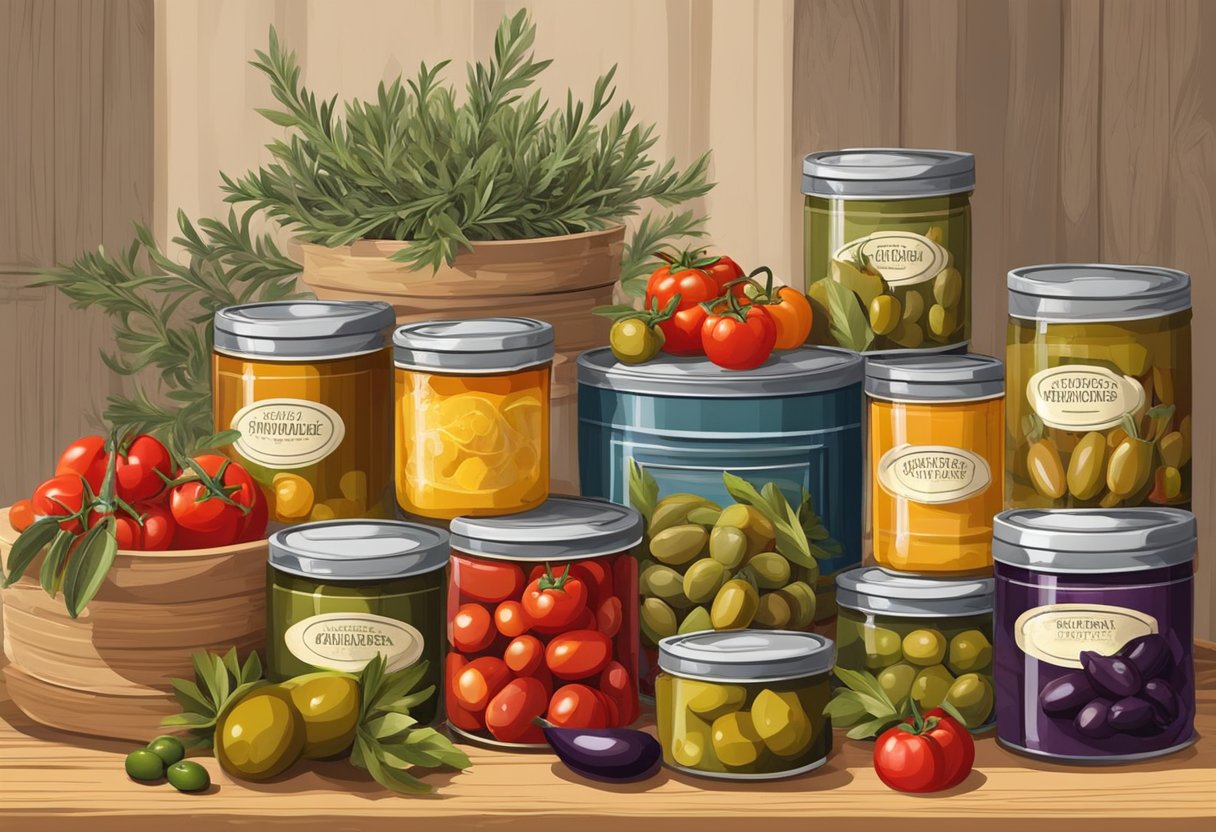
The Mediterranean diet is praised for its health benefits; incorporating gluten-free options can provide those with celiac disease or gluten intolerance the same advantages.
What are some gluten-free options for a Mediterranean diet breakfast?
For a gluten-free Mediterranean diet breakfast, individuals can enjoy Greek yogurt with fruits, gluten-free oatmeal topped with nuts and honey, or an omelet with spinach and feta cheese.
Can you provide a list of gluten-free ingredients commonly used in Mediterranean recipes?
Common gluten-free Mediterranean ingredients include quinoa, buckwheat, lentils, chickpeas, fresh vegetables and fruits, nuts, seeds, and olive oil.
Are there specific brands or types of gluten-free canned foods that are recommended for the Mediterranean diet?
Recommended gluten-free canned foods for the Mediterranean diet include canned fish like salmon and sardines, as well as legumes such as chickpeas and lentils, all naturally gluten-free and rich in nutrients.
What gluten-free options are available for Mediterranean meal delivery services?
Gluten-free Mediterranean meal delivery services often provide meals like quinoa tabbouleh, stuffed bell peppers with rice and ground turkey, or grilled fish with a side of roasted vegetables.
How can I locate restaurants offering gluten-free Mediterranean cuisine?
To find restaurants with gluten-free Mediterranean cuisine, one can search online food directories, use apps that filter for gluten-free menu options, or look for establishments that have gluten-free certifications or menu labeling.
Which condiments and seasonings are permitted in a gluten-free Mediterranean dietary regimen?
Permissible gluten-free condiments and seasonings include herbs like rosemary and thyme, spices such as cumin and coriander, vinegars (except malt vinegar), and sauces like tahini and pesto, provided they’re labeled gluten-free.



